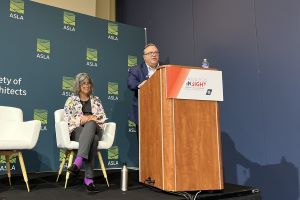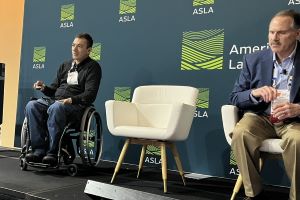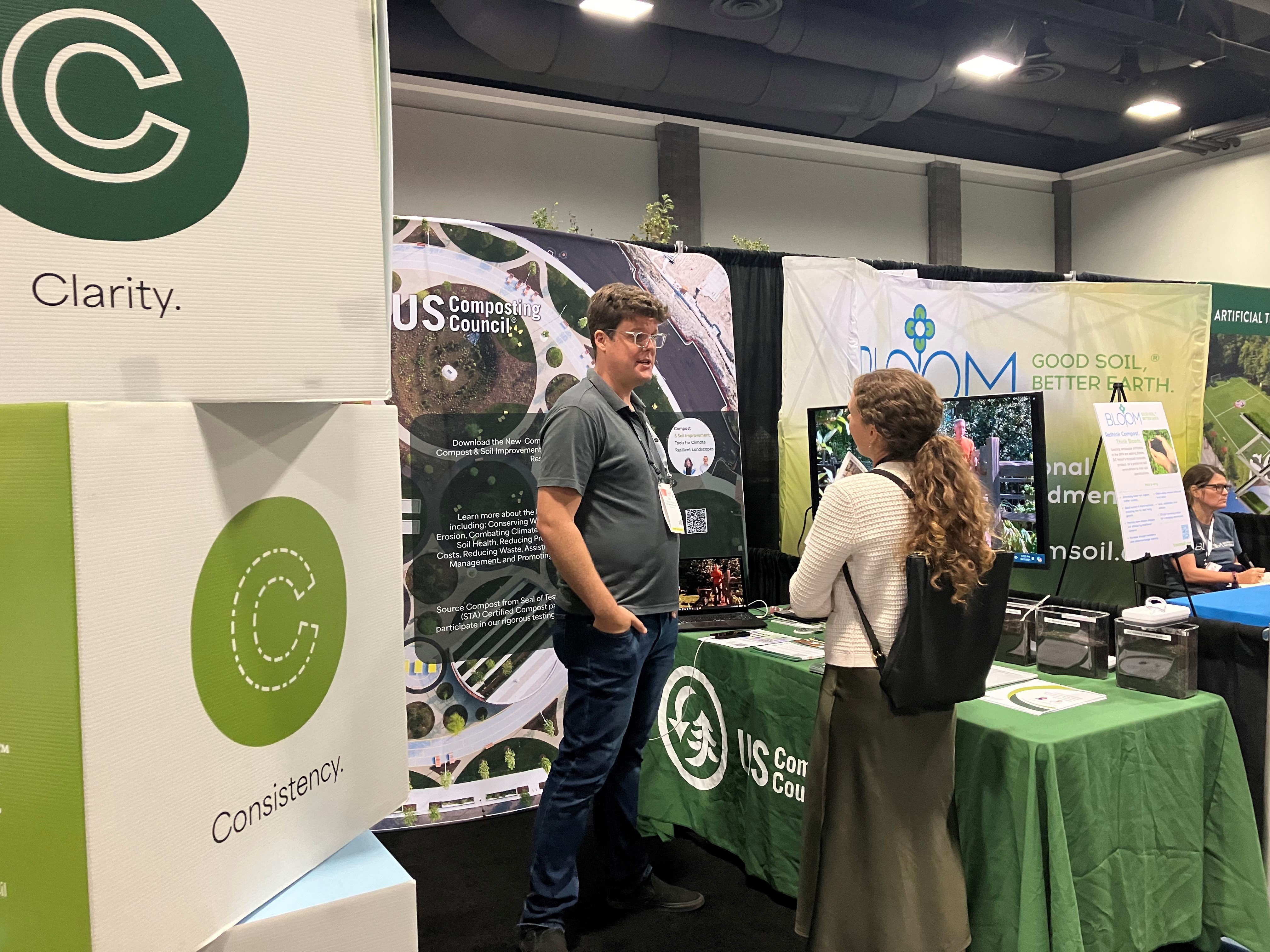USCC Members Highlight STA Certified™ Compost to Landscape Architects at ASLA
Print this Article | Send to Colleague
 |
|
| Frank Franciosi (presenting); Sally Brown (seated) |
By Frank Franciosi, Executive Director
This week, the USCC attended the American Society of Landscape Architects (ASLA) Conference in Washington, D.C. Hosting a session on Tuesday, Oct. 8, titled, “Get the Dirt on Soil-Level Strategies for Climate Resilience and Carbon Drawdown,” the session showcased how compost, specifically STA Certified™ Compost, can be a transformative tool for both landscaping projects and climate change mitigation. This is in tune with ASLA’s Climate Action Plan.
The session underscored the vital role soils play – not only in supporting plant growth but also in addressing climate change. With climate impacts becoming more severe, landscape architects and environmental professionals need soil solutions that can both restore degraded landscapes and sequester carbon. Compost, particularly when tested and verified for quality through the USCC’s Seal of Testing Assurance (STA) Program, is emerging as a key strategy for building climate-resilient landscapes. Dr. Sally Brown and Ron Alexander authored a free whitepaper titled "Compost & Soil Improvement: Tools for Climate Resilient Landscapes," specifically targeting landscape architects and seeking to supplement and improve on the ASLA Member Climate Action Field Guide.
 |
|
| L to R: Jake Chafin, Ron Alexander |
Dr. Sally Brown led the session with a science-based exploration of compost’s role in climate resilience. Drawing on data from the ASLA’s Climate Action Field Guide, she emphasized how compost improves soil health and increases its capacity to sequester carbon. Dr. Brown also highlighted compost’s contribution to established climate models, reinforcing its role as a vital component in reducing greenhouse gas emissions. STA Certified™ Compost, she noted, ensures the quality and performance needed to achieve these environmental goals.
Ron Alexander, of Alexander & Associates, shared insights on how to select STA Certified™ Compost, which adheres to strict testing standards to ensure that it meets specific nutrient and quality criteria. Ron also walked attendees through the standardized specification language used when purchasing compost for projects, simplifying the often-complex process of choosing the right product for the job.
Jake Chafin, from USCC member Laurel Valley Soils, offered a series of real-world examples from projects that successfully utilized STA Certified™ Compost. From enhancing soil conditions and supporting robust plant establishment to improving stormwater management, Jake’s case studies demonstrated how verified, high-quality compost is critical for landscape success. He underscored the importance of using STA Certified™ Compost to ensure consistency and performance across projects.
 |
|
| USCC Marketing Director Eric Hudiburg (left) at exhibit booth |
The USCC also had an exhibit booth in the tradeshow hall allowing attendees to stop by and talk compost with our presenters and staff. Attendees also had the opportunity to put their hands on varying finished products from an erosion control compost sock to top dressing! It was great to see that landscape architects are very interested in how compost can play a major role in supporting climate resiliency in landscape green infrastructure projects. The opportunity to speak to landscape architects is the result of the dedicated work of members of the USCC's Market Development Committee and the dedication of Ron Alexander, Sally Brown, and Jake Chafin. The USCC will continue to work with ASLA’s Climate Action Group to expand the knowledge of the environmental benefits of compost use in landscapes.

